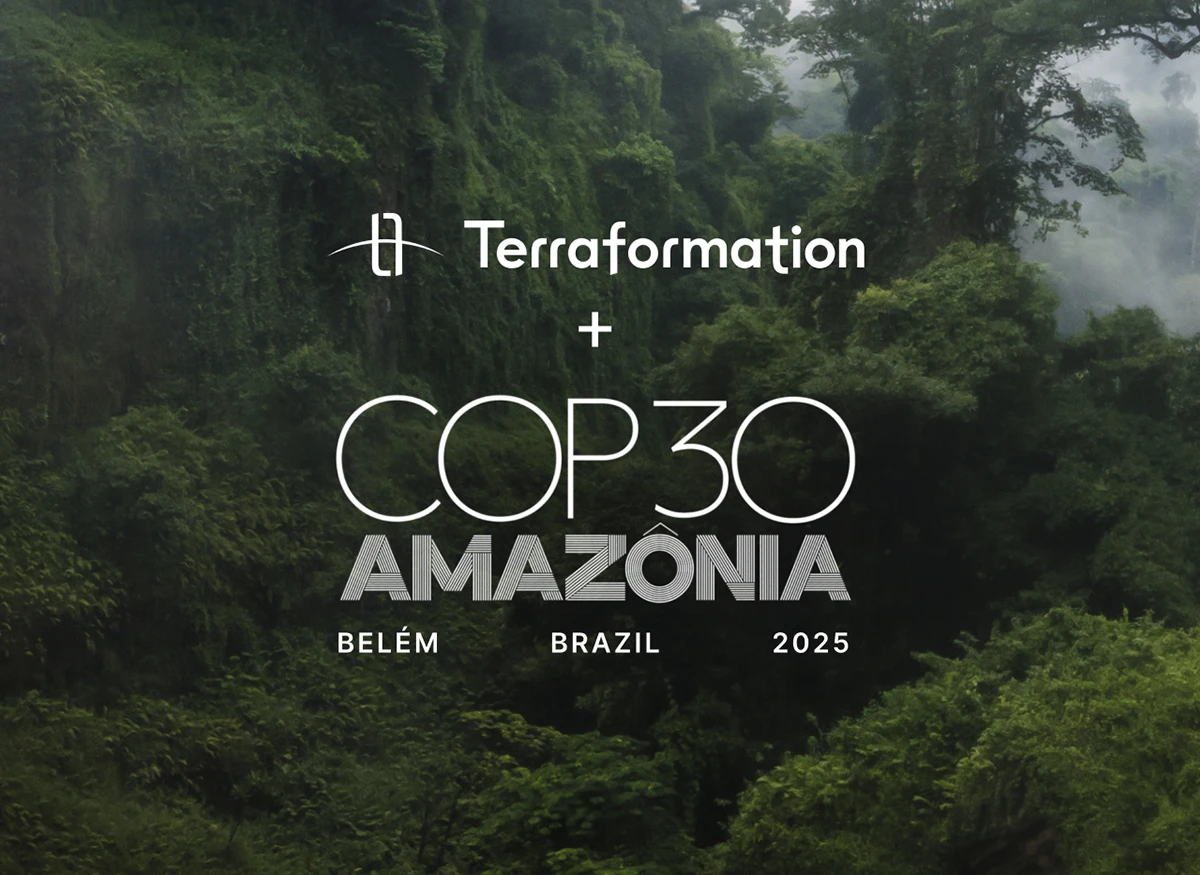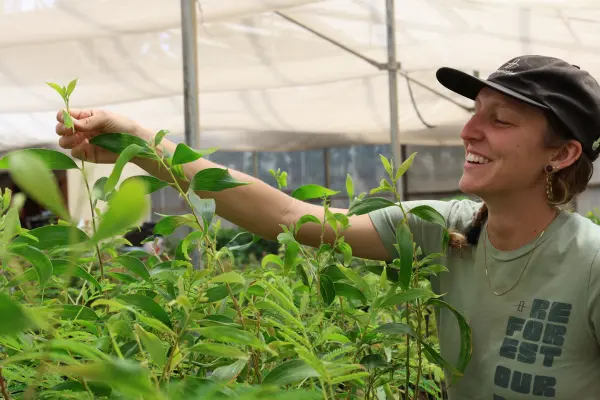Meet Dr. Shobha Maharaj — Science Director

Although Dr. Shobha Maharaj has devoted her career to researching climate impacts on biodiversity and forests, a different aspect of nature first attracted her while growing up in Trinidad. “I was always fascinated by and fell totally in love with volcanoes,” she says. “I wanted to become a volcanologist. But my parents would hear nothing of it — ‘we are not having you go anywhere near a volcano!’”
Shifting her focus to ecology proved equally satisfying — first as an undergrad double major in zoology and botany, then through a research master’s degree in environmental biology, both at the University of the West Indies. “The natural world was always a big part of me,” she says.
In a Darwin Foundation–funded partnership between the University of the West Indies and Oxford University, Dr. Maharaj led a team of foresters in an ambitious vegetative survey across Trinidad and Tobago, gathering data on the flora of both islands — which she later used to predict climate impacts on island forests.
Her team collected over 20,000 specimens, 90% of which they identified down to the species level — an unusually high success rate. With this research — the first-ever attempt to provide much-needed climate impact modeling for these unique ecosystems — she completed a Doctor of Philosophy at the University of Oxford.
But to this day, she remains troubled by stark gaps in climate education — particularly in the Caribbean. Climate change continues to hit these islands hard, eroding coastlines and spurring more intense hurricanes, giving these vulnerable ecosystems little time to recover. She wants to close the gaps in the scientific literature that are letting small islands like hers go unnoticed and under-served.
At the IPCC, speaking up for small islands and biodiversity
A few years after receiving her doctorate, Dr. Maharaj was invited by the Intergovernmental Panel on Climate Change (IPCC) to contribute to the 2022 IPCC report. Having seen firsthand the urgency of preparing Caribbean residents for climate change, and aware of the many gaps in the scientific literature addressing climate impacts on island nations, she welcomed this opportunity. She spent nearly four years serving as lead author, highlighting insufficiencies in the literature across several sections of this report, including the Small Islands chapter, the Biodiversity Hotspots Cross-Chapter Paper, and the Summary for Policy Makers.
But she knows that to restore ecosystems and preserve biodiversity will require major shifts in both policy and practice. She strives to bring awareness to challenges in ecosystem restoration, including the nearly 50% of global reforestation commitments that are for monocultures, which “are not forests in any sense of the word,” she says.
Terraformation’s focus on biodiverse native reforestation resonated with her values, and she joined the company in March of 2022.
Bringing biodiversity into the spotlight
As Terraformation’s Science Director, Dr. Maharaj is dedicated to making the science of ecosystem restoration more readily available to non-scientists. Most recently, she represented Terraformation at the UN’s Conference of the Parties on both climate change (COP27) and biodiversity (COP15), where she spoke on panels about the importance of biodiversity and native seed supply, as well as the dangers of monocultures.
“The science is very clear that we have a small and rapidly closing window” in which to act, she says. “It really excites me that Terraformation is one of the few companies across the entire world that is doing native, biodiverse reforestation. I think that is really rare, and the onus is on us to inspire other companies to do the same.”
Helping communities scale science-based solutions
Terraformation’s Seed to Carbon Forest Accelerator is an important step in making restoration beyond the monoculture model accessible to forestry teams. Dr. Maharaj describes the program as “holistic — a healthy, positive way of reforesting the planet.”
The newest challenge she and the Terraformation science team are taking on is to develop new methods for scaling propagation of native seedlings across different parts of the world, not just for Terraformation “but for the rest of the world to use as well.”
And developing innovative ways to scale native, biodiverse restoration is critical, as such climate mitigation buys precious time for adaptation — giving people in the most vulnerable places more time to adapt their livelihoods and food systems to changing climate conditions. “This is a must,” she emphasizes. The time is now — and by working to scale science-based solutions, she and her team are helping the world rise to the challenge.
















